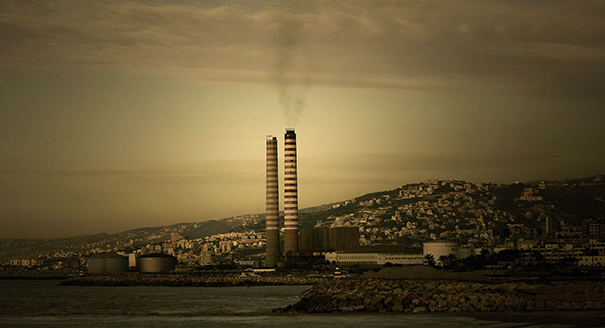Sibylle Rizk | Director of public policy at Kulluna Irada, a civic organization for political reform, in Beirut
It would come as a surprise if the Lebanese authorities were able to design and agree on sustainable economic reforms. Buying time has been their only objective for many years now, knowing that the endemic exploitation of public resources by the political elite has continued to fuel the clientelist nature of Lebanese politics. There is not a single reform that could be undertaken without undermining a deeply-rooted scheme of misappropriated public funds, waste of resources, unjustified tax shelters, unwarranted subsidies, illicit enrichment, organized monopolies, favoritism, rent-based activities, and so on.
The more the reforms are delayed the more costly they will become. Hence the inability of the current authorities to agree on any reasonable sharing of the burden, let alone an equitable one, that would spur job growth and address Lebanon’s debt and imbalances. The decisionmaking process has been flawed for too long. It is based on reciprocal veto rights over lucrative deals, not any acceptance over dividing the losses. This inability to reform is all the more significant in that the fear of triggering social anger is high.
Jad Chaaban | Associate professor of economics at the American University of Beirut
There is little doubt that Lebanon’s economy is suffering. Poverty is widespread; there are no jobs, especially for fresh graduates; prices are increasing and purchasing power is declining; and public infrastructure—electricity, water, transport, and communications—is dysfunctional. Urgent economic reforms are needed, but how can we expect the ruling class that is responsible for this dire state of affairs to enact them? The ruling cartel—a coalition of sectarian, business, and military leaders—has survived by sustaining a rentier economy distributing income and services to its networks of supporters.
The cornerstone of such a clientelistic economic model was a constant flow of funds from abroad in the form of remittances, foreign investment, and aid and political money. With such funds getting scarcer, Lebanon’s political class has struggled to find alternatives, which were promised through yet another donor conference, the CEDRE conference of April 2018. Lebanon’s rulers will, therefore, only pass minor economic reforms that do not undermine their hegemonic model of control.
Lydia Assouad | Ph.D. candidate at the Paris School of Economics, research fellow at the World Inequality Lab, and El-Erian fellow at the Carnegie Middle East Center in Beirut
Serious reforms are unlikely. It is true that Lebanon has a relatively new government, which has claimed that the introduction of economic reforms is a priority. Last week, the government approved the start of Lebanon’s second offshore oil and gas licensing round and a plan for the electricity sector, a first step toward much-needed infrastructure reforms. The incentives of the government to look reformist are high. The country is in a financial crisis and the $11 billion in aid Lebanon obtained at the CEDRE conference of April 2018 is conditional on the implementation of effective reforms.
However, deeper reforms, able to address the extreme levels of inequality that Lebanon is experiencing or the rampant corruption of its institutions, are unlikely. The country’s political and economic elites haven’t changed, nor have their interests. Implementing drastic reforms would jeopardize the rents they are reaping from the public debt or the real estate sector, among other sources. That is why reform attempts have been lukewarm in recent years. The 2017 fiscal reforms, for example, did not even come close to meeting the country’s needs. There is little hope that future reforms—if implemented at all—will be more successful in doing so.
Sami Nader | Director of the Levant Institute for Strategic Affairs, economist, and lecturer at Université Saint Joseph in Beirut
The Lebanese economy is like a boat in the heart of a storm. The same crew has been at the helm for the last fifteen years, with no captain in charge. The crewmembers represent Lebanon’s different sectarian groups and have spent more time fighting with each other than agreeing on a plan to avoid a shipwreck.
One could have imagined that the dangers of the situation, international pressure, and, more importantly, their own survival instinct would have been enough to push the crew to save the ship by reducing the real burden on the economy, namely high public expenditures. That means introducing deep structural reforms aimed at reducing the budget deficit and triggering sustainable growth. This has not happened yet, two months after the formation of the government and one year after the CEDRE conference in Paris that was organized to help Lebanon address its economic problems.
In fact how can those responsible for Lebanon’s problems resolve these very same problems? Genuine reform would transform the political and economic system from which they are benefiting. They will not dig their own graves. Therefore, reform seems very difficult, not to say highly unlikely. I hope I am wrong.








